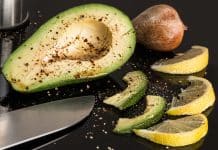Before you start growing your vegetable garden, you need to choose the right location and prepare the soil. In this regard, my advice to anyone who wants to start growing their own food is to start small. If you are new to the practice, do not begin by digging up your entire yard and planting every possible crop. You will only be setting yourself up for failure because you will become so overwhelmed and frustrated, that you will end up quitting.
Read the first article in the series here.
In 2004 my husband and I made our first garden in a space of 2m x 2m. We had just bought our first house and removed a patch of lawn from our backyard so that we could grow food. We planted the basics: spinach, onions, beans and salad greens. Harvesting our very first spinach grown from seed was very satisfying. To us, this was abundant living, even though our garden was small. We were so encouraged by what we could achieve, that we later moved to a house with a bigger yard so that we could expand.
Our new garden was 5m x 4m and we also had to start by removing the lawn. Here we were able to grow more food such as carrots, beets and chilli. We also experimented with green peppers, eggplant and zucchini.

Sweet potato was one vegetable that never grew no matter how hard we tried. We later learned that the reason these plants never grew had nothing to do with the fact that they did not like us, but it had everything to do with the fact that we had planted them in the shade. We have learned many other lessons by starting small – and we are still learning!
Learning as you go
Today our garden is just over 160m2 and this is by no means small. We can grow just about anything we can imagine here, from daily staples such as spinach, tomatoes and onions to entire patches of indigenous herbs such as two varieties of mpepho (Helichrysum petiolare and Helichrysum italicum), lengana (Artemisia afra), wild garlic (Tulbaghia violacea) and wild rosemary. It certainly pays to start small and learn the ropes along the way.
Learn more about the plants as you go, develop a relationship with your soil, observe the insects and birds that visit your garden and if you like it, grow it. Gardening is not rocket science, but it does take learning. There is no substitute for experience. – Manti Maifadi, Naledi Farm
For more information on Naledi Farm or for advice on
growing veggies at home, contact Manti on cell 082 800 2327
or email bookings@naledifarm.co.za.







